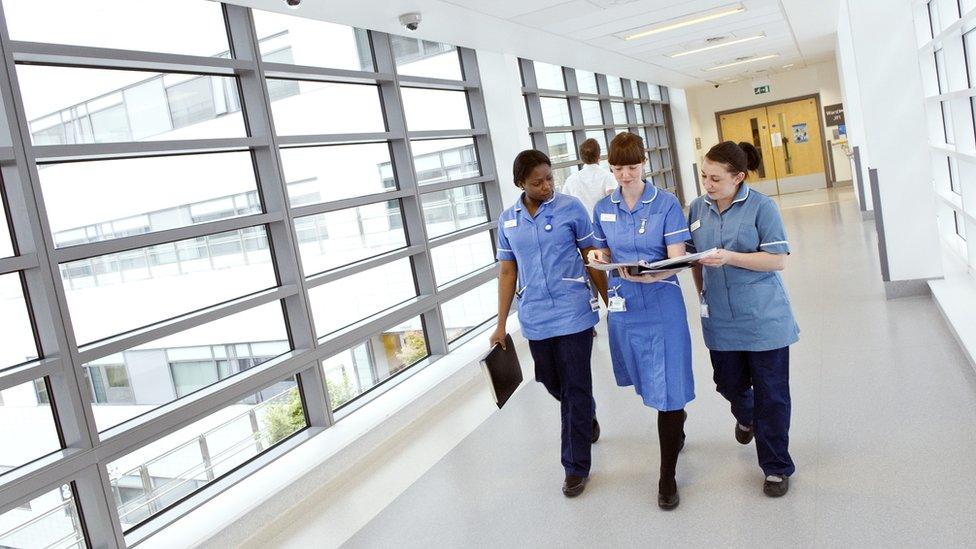Why are nurses balloting for strike action?
- Published
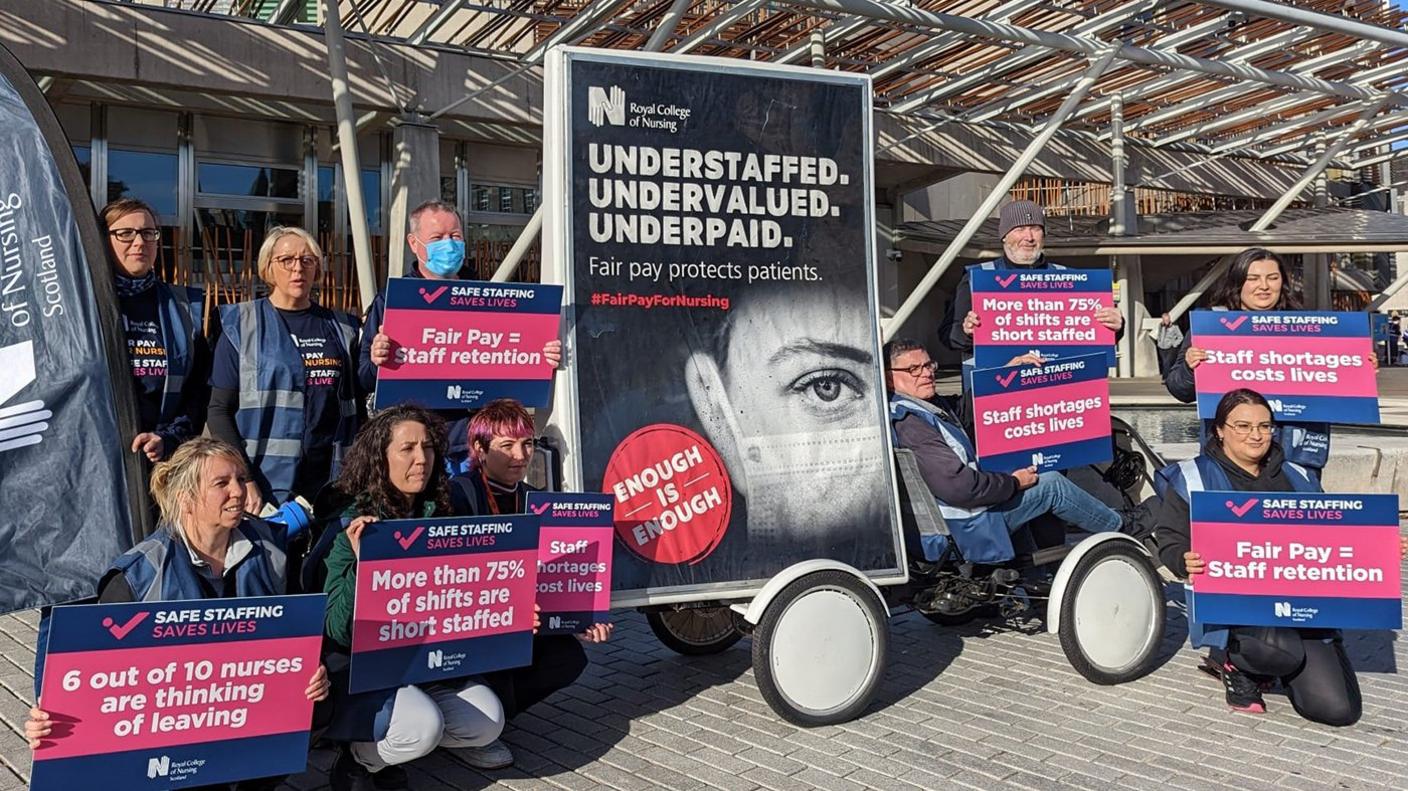
Nurses have staged a protest outside the Scottish Parliament as the Royal College of Nursing (RCN) begins a ballot on strike action.
The union is recommending its 300,000 members walk out after rejecting the Scottish government's 5% pay offer.
The RCN is balloting all of its UK members for the first time in its 106-year history.
Scotland's health secretary Humza Yousaf has said he hopes a pay deal can be agreed soon.
Nurses in Edinburgh told BBC Scotland they had never faced such pressure and were prepared to strike for a better pay deal.

'It is physically and emotionally exhausting'
Rhys Greig, Charge nurse at Blood Transfusion Service
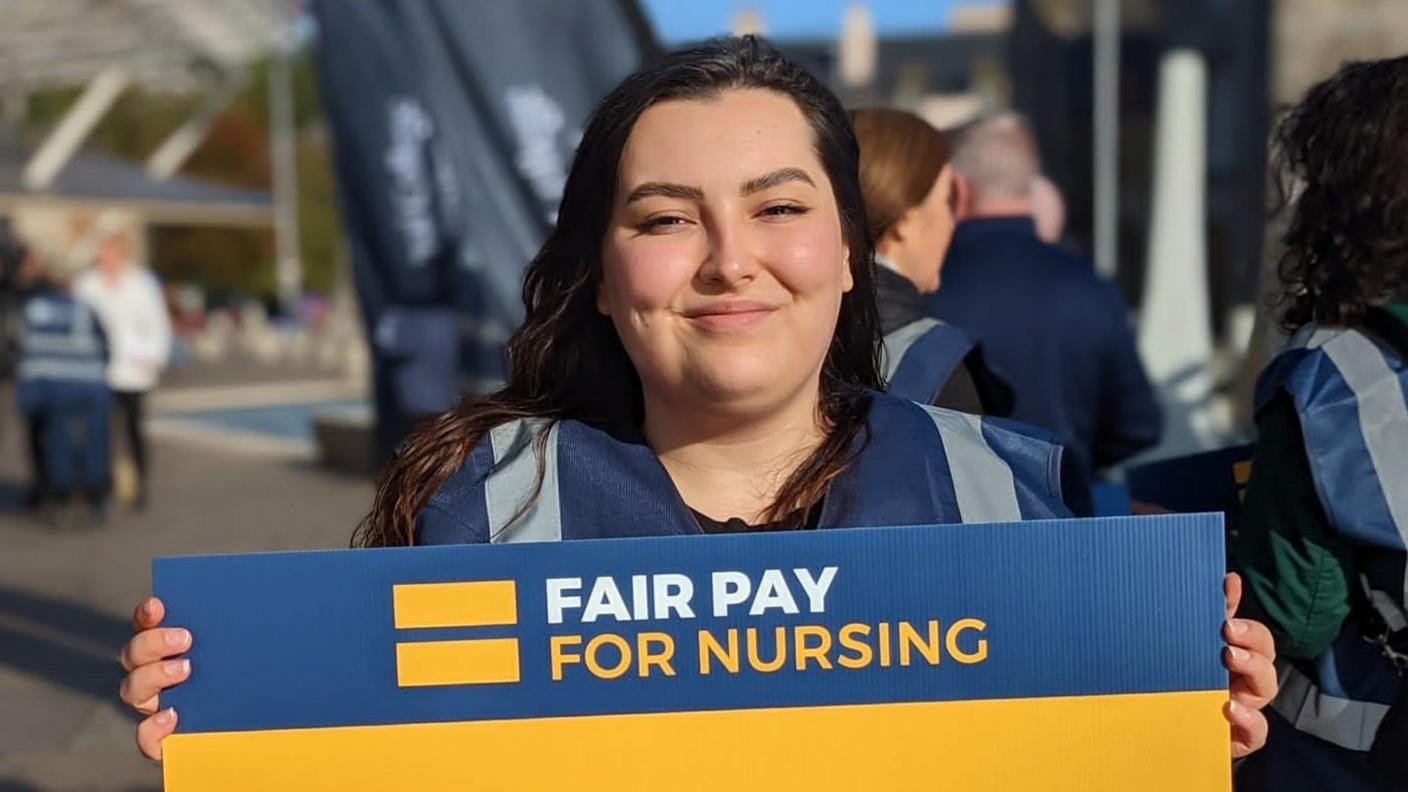
In just two years since she has been a nurse, Rhys says she has already noticed big changes.
"The pressure we're under is much higher, there are often staff shortages," she said.
"Pressures were beginning to mount before Covid, but the pandemic accelerated that.
"Because services are so busy, we're expected to do the same work with less staff - that's really challenging. It's exhausting physically and emotionally.
"It can feel demoralising and morale is very low - to the point where people are thinking of leaving the profession. It is sad, we're losing a lot of valuable people."
Rhys admits she has considered leaving nursing herself.
"I've only been here two years, I never thought at this stage I'd be reconsidering my career for something completely different.
"We're much worse off with the cost of living. The money I earn covers my bills and my bills only. It's a big worry
"We need to be rewarded for our professionalism, we are skilled people and this is not reflected."
'We are demoralised and bleeding staff'
Shirley Robertson, Community nurse
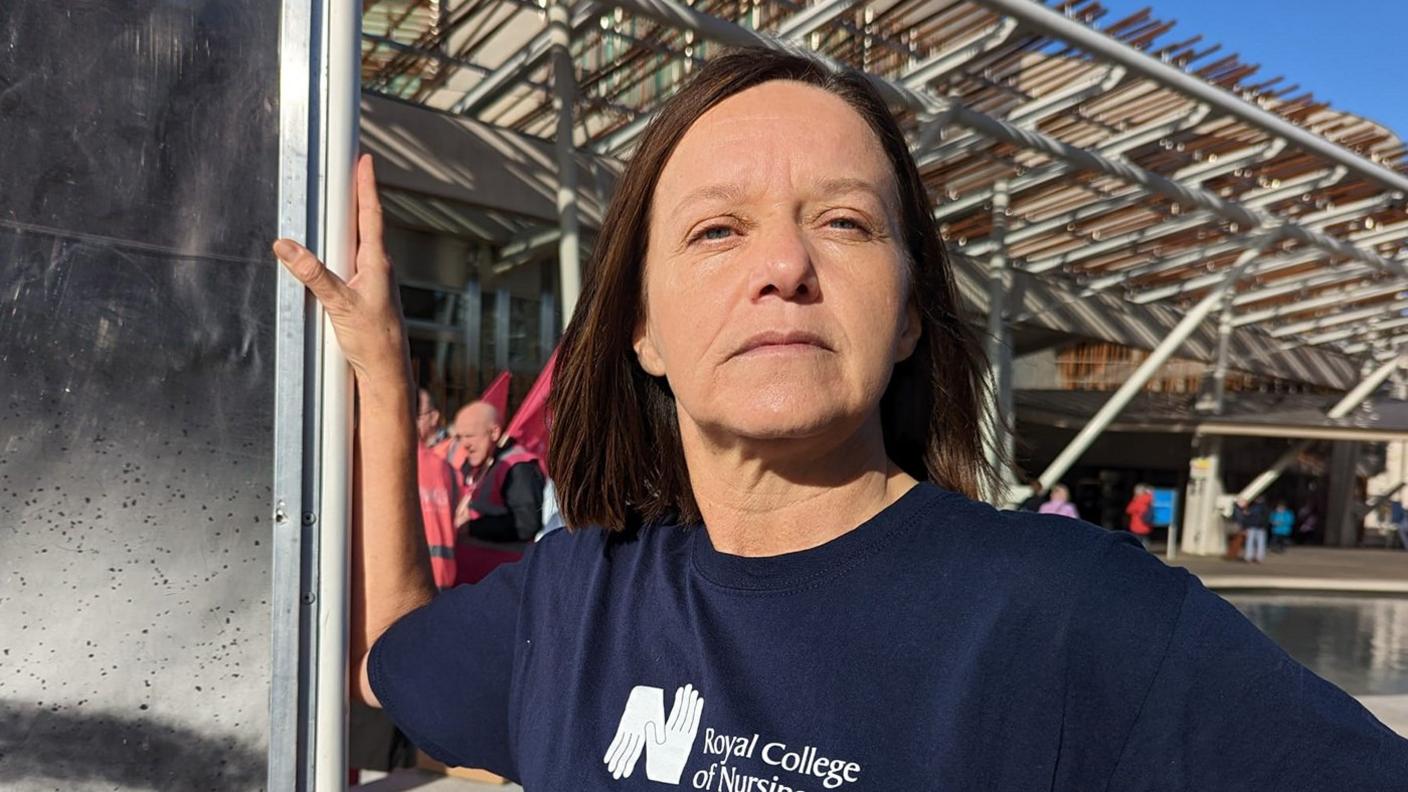
Shirley Robertson has been a nurse for 34 years, but says she has never felt more undervalued.
"Right now we are demoralised, understaffed and are bleeding staff at a rate of knots," she said.
"If we don't retain our experienced staff how can we support and nurture our newly registered nurses."
Shirley said the profession feels "completely different" to her early career in the 1990s.
"I remember mass recruitment. I had interviews at hospitals all over Scotland, I could have had my pick, the staffing ratios were much better.
"Nursing care has evolved, what we do on a day-to-day basis and the responsibility we have is incredible. I have to question whether our staffing levels are safe right now?
"Any pay award has to be significant so we can attract people into this profession.
"This is about protecting patients and making sure there are enough staff on the floor to give care safely and effectively."
'Who wants to be a nurse?'
Hilary Nelson, Intensive care nurse
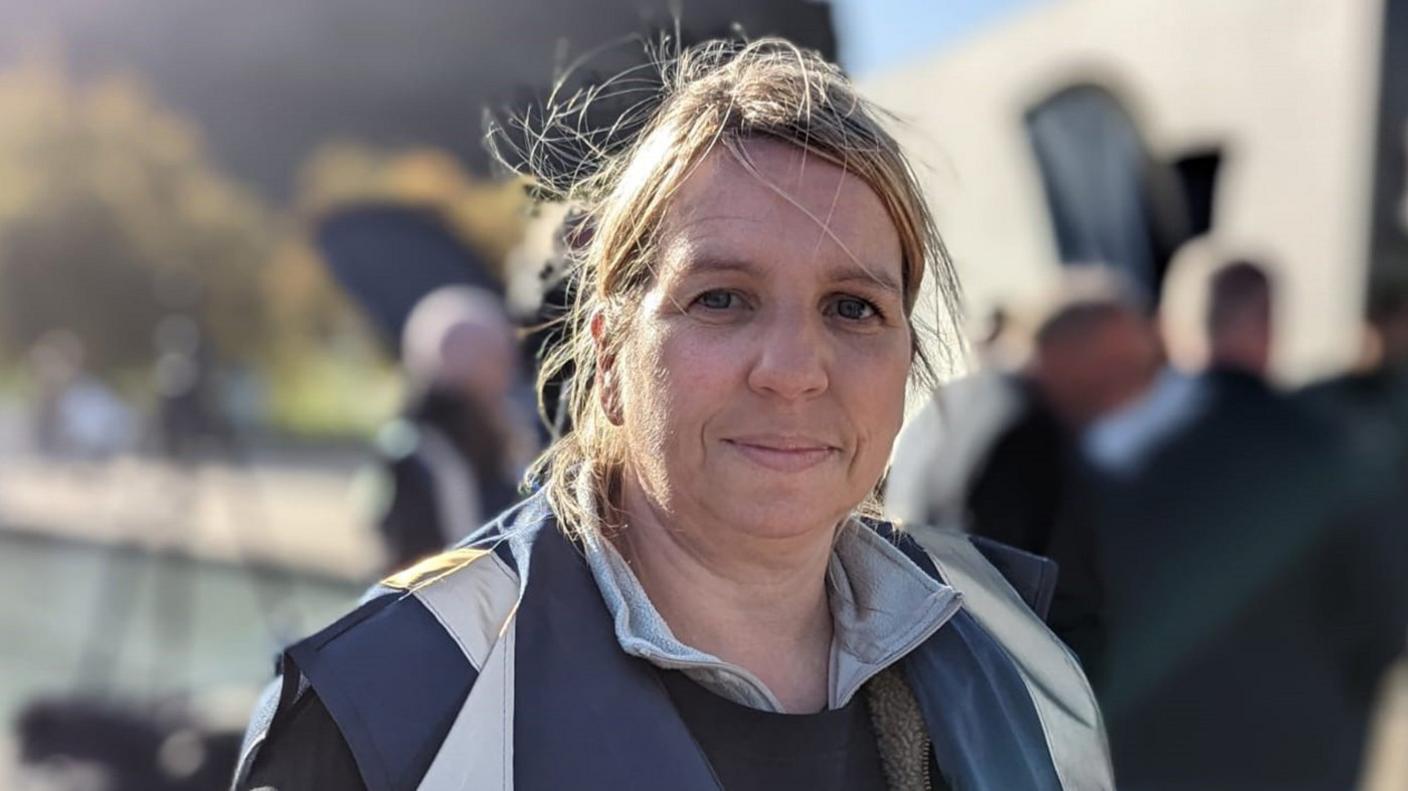
Being a nurse is "like going to war every single day" says Hilary Nelson, who has worked in the profession for 25 years.
"It is exceptionally busy, nursing staff are under immense pressure, recruitment levels are dire, it feels desperately unsafe," she said.
"I was working during Covid, and it was difficult, but we are coming through the end of the pandemic and staff are tired.
"They are not getting paid enough and they are asked to do more and more.
"We are a graduate profession, we need to have great knowledge, complex skills, but this is not valued."
Hilary said the cost of living crisis has put nurses under "unprecedented pressures".
"We can't make ends meet, people are cutting back, nurses are going to food banks," she said.
"One told me she couldn't even afford to buy her child a school uniform."
"I've never seen nursing as bad as it is now, we are recruiting newly registered nurses and we are desperate to support them on their journey.
"It is a fantastic profession, but at the end of the day, who wants to be a nurse?"

The result of the RCN ballot is due next month. If strikes go ahead, the union said it would affect non-urgent, but not emergency care.
Colin Pullman, director of RCN Scotland, said: "The Scottish government has not come back to us with an improved pay offer, our members feel they have no option but to take strike action.
"We've only done it once in 106 years, which shows the difficulties our members are going through right now."
"Nursing is no longer seen as an attractive proposition and pay is part of that. We need to make sure we have a sustainable workforce, we have had too many years of cuts."
The Scottish government said this week that Scotland's NHS would recruit 1,000 new staff to help the health service cope this winter.
Health secretary Humza Yousaf said more than £8m would be invested in recruiting 750 additional nurses, midwives and health professionals from overseas.
Mr Yousaf said: "Any ballot for industrial action is disappointing. We are engaged with health unions and I hope we can come to an agreement on pay in the near future."
- Published6 October 2022
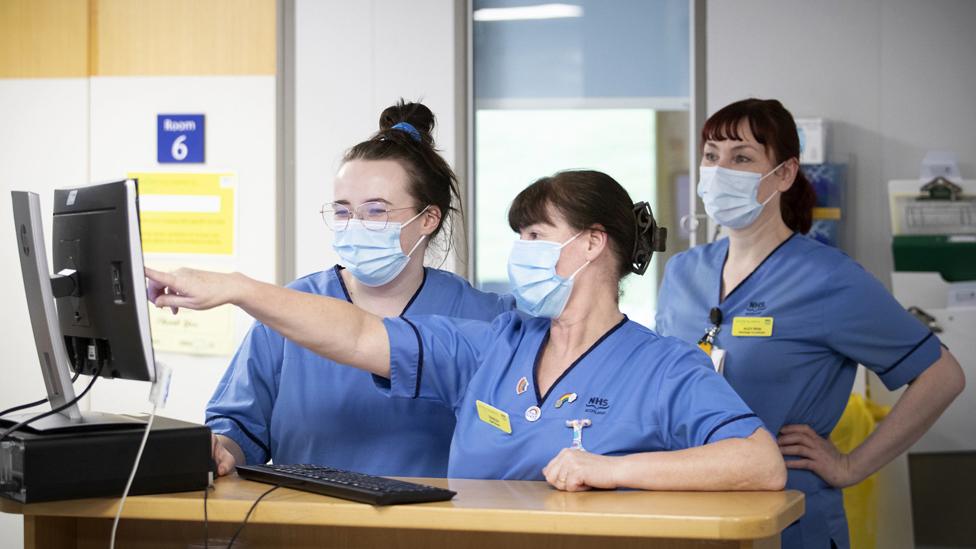
- Published4 October 2022

- Published30 September 2022
